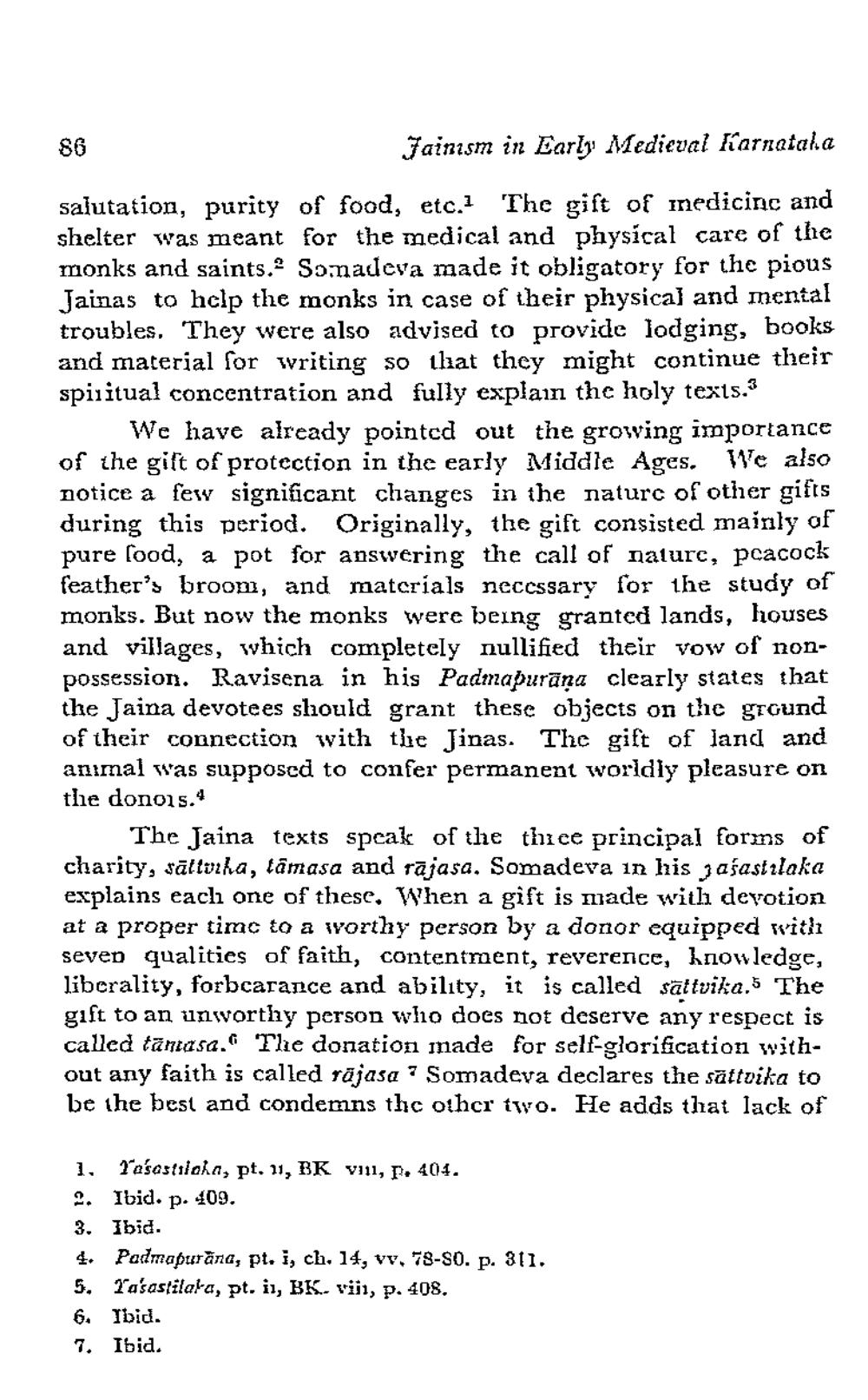________________
86
Jainism in Early Medieval fiarnataka
salutation, purity of food, etc. The gift of medicinc and shelter was meant for the medical and physical care of the monks and saints.” Sornadeva made it obligatory for the pious Jainas to help the monks in case of their physical and mental troubles. They were also advised to provide lodging, books and material for writing so that they might continue their spiritual concentration and fully explain the holy texts.3
We have already pointed out the growing importance of the gift of protection in the early Middle Ages. We also notice a few significant changes in the nature of other gifts during this period. Originally, the gift consisted mainly of pure food, a pot for answering the call of naturc, pcacock feather's broom, and matcrials necessary for the study of monks. But now the monks were being granted lands, houses and villages, which completely nullified their vow of nonpossession. Ravisena in his Padmapurāna clearly states that the Jaina devotees should grant these objects on the ground of their connection with the Jinas. The gift of land and anımal was supposed to confer permanent worldly pleasure on the donois.
The Jaina texts speak of the thice principal forms of charity, sāllviha, tāmasa and rājasa, Somadeva in his jaśastılaka explains each one of these. When a gift is made with devotion at a proper timc to a worthy person by a donor equipped with seven qualities of faith, contentment, reverence, knowledge, libcrality, forbcarance and ability, it is called sättvika 5 The gift to an unworthy person who does not deserve any respect is called täntasa." The donation inade for self-glorification without any faith is called räjasa ? Somadeva declares the sättvika to be the best and condemns thc other two. He adds that lack of
1. Taśastian, pt. 11, BK vni, p. 404. 2. Ibid. p. 409. 3. Ibid. 4. Padmapurana, pt. i, ch. 14, vv. 73-80. p. 311. 5. lasastilata, pt. ii, BK. viii, p. 408. 6. Ibid. 7. Ibid.




